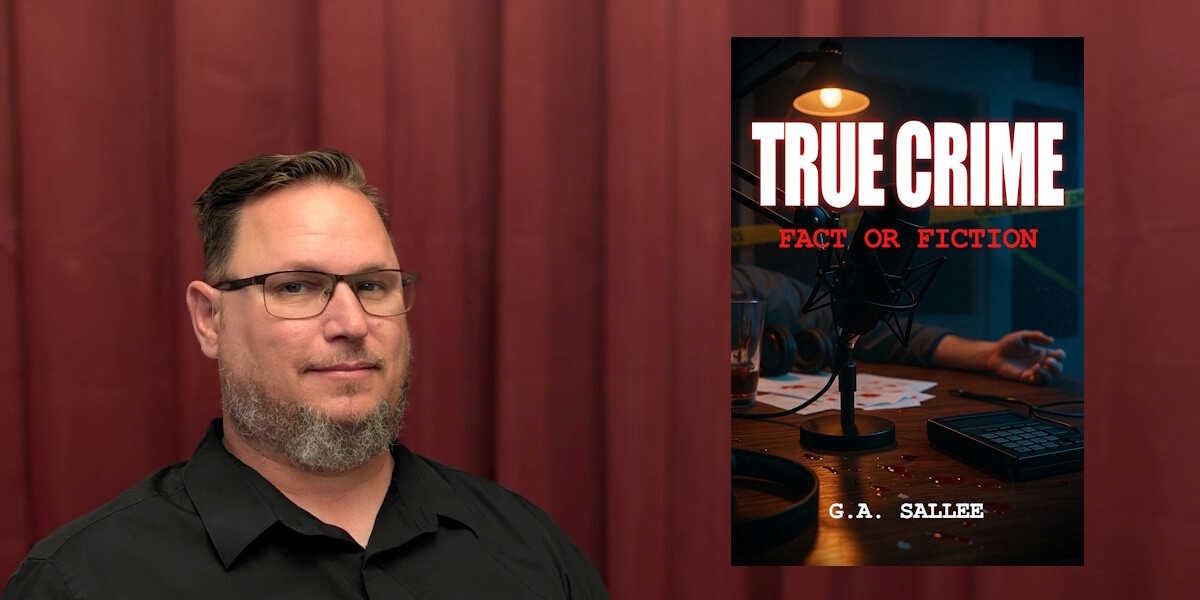By: Tom White
For G.A. Sallee, storytelling is more than just a craft: it is a form of healing. His journey from soldier to author has been marked by profound personal change, with writing becoming a lifeline after military service. As he prepares to release his first novel, True Crime: Fact or Fiction, Sallee is eager to share that evolution with readers who value suspense, honesty, and emotional truth.
Finding Clarity Through Words
Like many veterans, Sallee faced the challenge of reintegrating into civilian life after serving in the Iraq War. As a proud disabled veteran, he turned to writing as a way to process his experiences and find new purpose. In that uncertain chapter, writing became something more than just a pastime. It became a guide.
“I began writing again after I got out of the Army. It wasn’t just about the story; it became something bigger than me,” he shares.
The U.S. Department of Veterans Affairs highlights that creative expression can play an important role in long-term emotional health, particularly for those managing trauma. Sallee’s return to the page offered just that: a space to reflect, reconnect, and rediscover his voice.
One of the biggest challenges he faced, he admits, was finding people in the publishing industry that he could trust. Combined with occasional bouts of writer’s block, these obstacles tested his persistence. But continuing to write remained his way through.
Emotion Woven Into Fiction
At the heart of Sallee’s work is empathy. His writing doesn’t just entertain; it delves deeper. True Crime: Fact or Fiction centers on podcaster Scott Townsend, a man who embarks on investigating a local cold case, only to find himself drawn into a more personal mystery. When a second murder mirrors the first, Scott’s mission becomes increasingly perilous, and the line between curiosity and obsession starts to blur.
The novel examines timely questions: What responsibilities do storytellers carry? When does a search for truth risk becoming a threat? Sallee’s straightforward, unadorned style, appreciated by readers for its simplicity, brings his characters’ struggles to the forefront in a way that feels immediate and relatable.
The Killer is Listening
With the unsettling tagline, “The killer is listening,” Sallee sets the tone of the book: one of constant tension. Scott Townsend’s podcast may have begun as a way to attract an audience, but it quickly escalates into something far more consequential. Themes of surveillance, trauma, and the blurry line between justice and exploitation weave an undercurrent of unease throughout the novel.

Photo Courtesy: G.A. Sallee
A Story for the Whole Family
Though Sallee’s book is fictional, it is deeply rooted in personal connections. He resides in South Carolina with his wife, Sandrice, their three dogs, and an extended family that includes four children and seven grandchildren. “Life has blessed me with a big, loving family that I was fortunate enough to marry into,” he says.
“I’m a husband, a father, a grandfather… and this book is part of the legacy I hope to leave behind,” he adds.
His writing process mirrors that warmth and intimacy. He recalls writing with his dog, Jake, curled up across his lap, the rhythm of the keyboard syncing with the quiet comfort of family life. These moments ground his work in a sense of home, even as the narrative takes darker turns.
Looking Ahead
Sallee hopes that True Crime: Fact or Fiction marks the start of a long creative journey. His goals are both personal and artistic.
“This is just the beginning,” he says. “I want to invite people to join me on this creative path.”
To learn more about G.A. Sallee and his upcoming book, visit gasallee.com. If you enjoy thrillers that blend suspense with heart, this debut may be one to watch.
















